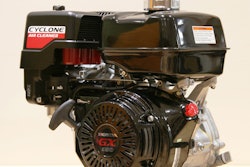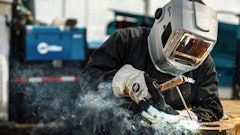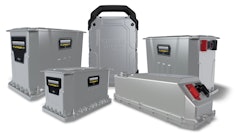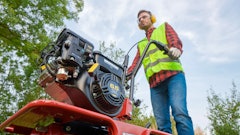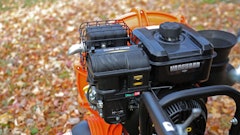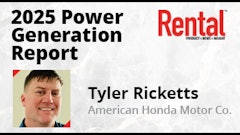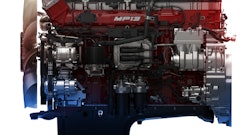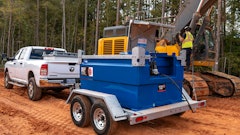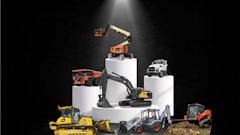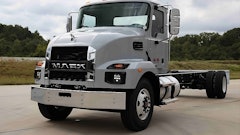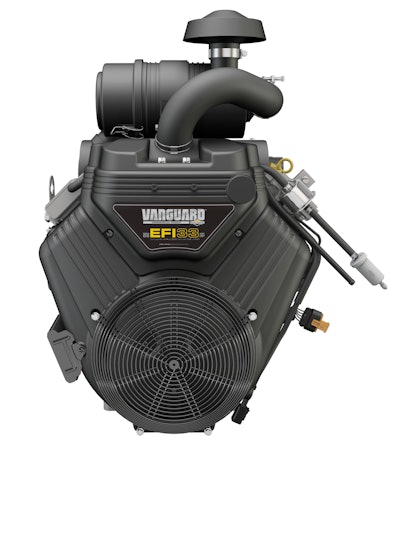
Rental equipment isn’t exactly easy on small engines.
Equipment lent out by rental stores is often transported from site to site and used by operators who may not be intimately familiar with how the equipment should be properly used. The combination can lead to equipment failure - and costly downtime for the rental store owner.
Fortunately, engines powering a lot of the equipment commonly found in a rental yard’s equipment fleet are being built to be stronger and smarter, in an effort to help prevent equipment from breaking down.
Overcoming troubles with transport
Equipment transport from the rental store to the jobsite can cause serious damage to the operability of a small engine, and thus, the equipment it’s been asked to power. Oil dilution is the biggest instigator of engine problems caused during equipment transport. Fortunately, engine manufacturers are engineering innovations to help combat transport-related engine issues.
“We challenged our engineers to find a solution to the problems often associated with high-frequency equipment transport, which is so common in rental equipment,” says Jim Cross, marketing manager for Briggs & Stratton Commercial Power. “The TransportGuard System was designed to specifically stop gasoline from making its way from the fuel tank into the engine when moving to and from the jobsite.”
Here’s how a standard fuel system works: A direct link between the fuel tank and the engine isn’t automatically shutoff when the engine is stopped. Instead, a small lever component sits in the carburetor that is designed to move independently and allow more fuel into the engine at the right time. That “float valve” can open and close because of vibrations that naturally occur on a truck bed or trailer during transport, which sends fuel from the fuel tank into the engine, causing oil dilution. It’s a serious problem with costly consequences.
Vanguard engineers researched and created TransportGuard, an integrated switch that simultaneously shuts off the ignition and the fuel. This system ensures that fuel stays where it belongs and helps eliminate fouled plugs, hydraulic lock, cylinder wash down and crankcase oil dilution caused by transportation. Ultimately, this saves equipment owners and rental firms money by decreasing downtime and repair costs.
“Oil dilution decreases engine life by potentially more than half its life,” says Mike Braun, product manager for Vanguard V-Twin engines at Briggs & Stratton Commercial Power. “Keeping the oil clean of gasoline is key for a functional small engine and that’s the center piece of TransportGuard.”
Two signs dilution has occurred are if the engine oil smells like gasoline or is black or chocolate in color. Change the oil immediately in either case.
EFI engines make it easy
Equipment powered by a small engine with electronic fuel injection technology can help minimize rental-related equipment issues, too. If an operator takes the equipment to a jobsite and can’t get the engine working, they immediately blame the equipment, which often isn’t the case.
EFI engines can help keep engine operation simple for operators who don’t use the equipment everyday.
“One of the key things that is helpful about EFI for rental equipment is it’s easy to use,” Braun says. “EFI removes the choke and also makes for easier starting in hot and cold temperatures. It also adjusts automatically for altitude compensation.”
Braun says the chokeless starting is beneficial for a lot of equipment operators on jobsites today, because many of them grew up with chokeless cars. Plus, a lot of “weekend renters” have no idea what a choke is, so asking them to operate equipment with choke will likely result in a negative experience.
Keeping cool
Another advancement in small engine features to prevent downtime, with particular interest to rental applications, is the inclusion of oil coolers. Oil coolers keep the engine’s oil in the best possible condition for optimum operation.
Oil does two things in an air-cooled engine: It is used to lubricate the engine’s components and disperse the heat throughout. But, Braun reminds, oil loses its lubricity if it gets too hot.
“You want the engine’s oil temperature high enough to evaporate water and remove it from the combustion process, but not too hot that the oil starts to break down and negatively affect the engine’s performance,” Braun says.
Oil coolers and new debris management systems are helpful in keeping engine components cool. After all, Braun says, if the engine and its components are running hot, the oil will, too.
Debris management systems like Briggs & Stratton’s Commercial Series V-Twin engine is designed with a patented 5-Step Debris Management System and cyclonic air filter that keeps harmful debris out of the engine. Rental shops should look for engines designed with features like large fins that encourage more air-to-engine contact, debris-inspection ports, and other design elements that help keep an engine cool in dusty, debris-filled work environments.
Minimizing downtime when it happens
It’s inevitable that at some point during the year, equipment will have issues, but sometimes they can be easily fixed so that a long-term period in the service shop can be avoided. Here are a few tools to help make periods of downtime as short as possible:
- QR codes - Acting as an in-field maintenance assistant, an engine QR code can take an operator with a mobile device to an engine manufacturer’s operator manual, parts list, and troubleshooting guide - and potentially lead to a quick fix.
- SmartEquip Network - This network allows rental stores to find replacement parts in a single location online, which can lead to a quicker delivery. Check to see if the equipment’s engine manufacturer is part of the network.
- Service education - Most engine manufacturers offer service education of some sort, but rental store owners should research what education options are available that meet their business’ needs. Some engine manufacturers offer onsite and online education options to best equip service technicians with the most up-to-date information to help keep equipment running properly.
- Engine manufacturer customer service - Many customer service tools are offered by engine manufacturers that rental store owners should be aware of, because many can help limit downtime when a problem does occur. Parts delivery promises and live call center assistance can range from manufacturer to manufacturer, so it can be helpful to know what each offers prior to equipment purchase.
These are just a few of the features on the growing list of engine advancements that can help keep equipment running in a market that isn’t exactly kind to small engines. But if rental store owners seek power sources that make operation easy, while providing features that keep an engine durable under stressful work environments, equipment can be kept out of the service shop and in the field where it belongs.
Jeff Salem is a public relations counsel at Swanson Russell. Based in Lincoln, NE, the marketing communications agency focuses on specific areas of business including the rental, construction, and landscape industries. Jeff can be reached at [email protected].

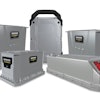

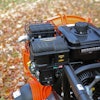

![[VIDEO] Subaru Introduces Technical Advancements for EX, SP Engines](https://img.forconstructionpros.com/files/base/acbm/fcp/image/2016/02/default.56b9fe31a1ff4.png?auto=format%2Ccompress&fit=crop&h=167&q=70&w=250)
